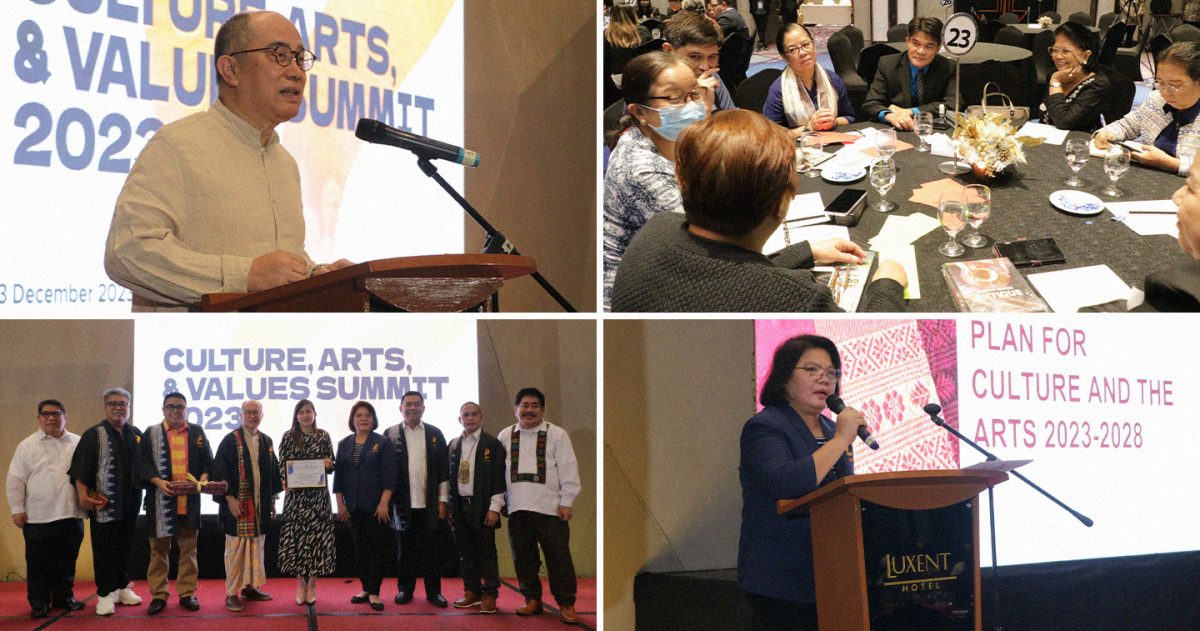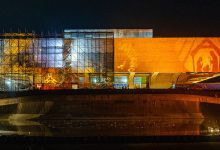MANILA, PHILIPPINES — The echoes of collaboration and inspiration reverberated as the Culture, Arts, and Values Summit 2023 kicked off on December 13 at the Luxent Hotel, Timog Avenue, Quezon City, bringing together Executive Council members of the 19 National Committees of the National Commission for Culture and the Arts (NCCA).
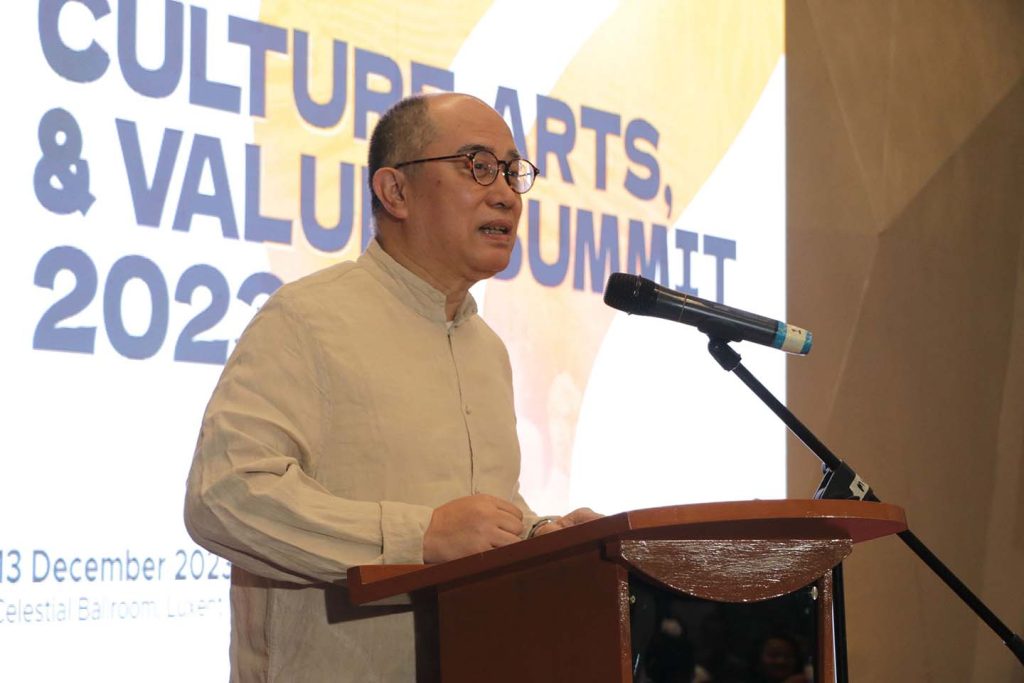
The discussions were divided into two parts: “Taking Stock: National Developments that Impact on Philippine Culture, Arts, and Values,” as well as “Reflections: The Inter-Island and Regional Contexts and Philippine Culture, Arts, and Values.” The program commenced with welcoming remarks from NCCA Chairman Victorino Mapa Manalo, followed by the acknowledgment of participants from the 19 National Committees, led by NCCA Deputy Executive Director for Operations Bernan Joseph Corpuz.
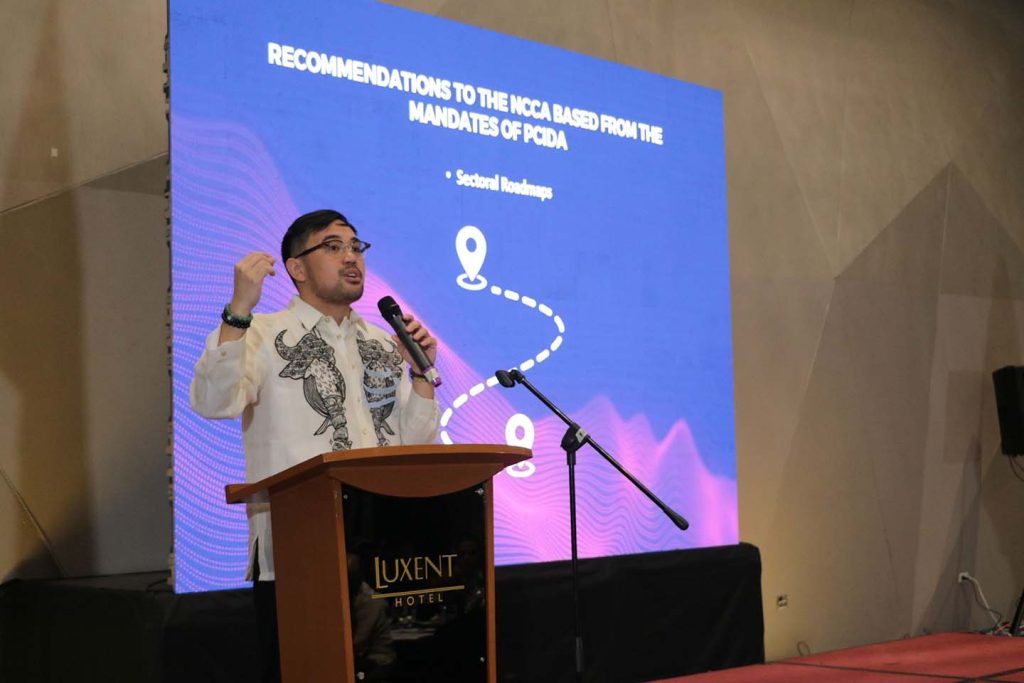
The first session of the first part, “The Creative Industries Law,” was discussed by Congressman Christopher de Venecia of the 4th District of Pangasinan. Eight recommendations for the NCCA inclined with the roadmap of the Philippine Creative Industries Development Act were laid out as follows:
- Creation of National Committee for Design and Gastronomy;
- Creation of new funding paradigms to address limited budgets through capacity-building;
- Sustainability talks;
- Drafting sectoral roadmaps;
- Determining hard to soft infrastructure, black to human gold;
- Organizational development;
- Empowering local culture and arts councils; and
- Provision of targeted interventions in the UNESCO Creation Cycle.
The NCCA Cultural Mapping Program was then discussed by Commissioner Arvin Manuel Villalon, emphasizing the importance of analyzing and utilizing cultural mapping for the preservation of tangible and intangible cultural heritage. In his presentation, it was also noted that only 109 out of 1,715 local government units (LGUs) have completed cultural mapping and that the target to conduct a cultural mapping for all of the Philippines’ LGUs may need more budget and expanded timelines.
The third session focused on intellectual property rights led by Atty. Rowel Barba, Director General of the Intellectual Property Office of the Philippines (IPOPHIL). The session highlighted the importance of educating creatives about their intellectual property rights for the protection and innovation of their crafts, including possible collaborations with IPOPHIL.






An open forum was held where participants were able to address the panelists about issues on cultural mapping, integrating cultural policies of different agencies, and other concerns about safeguarding arts and culture. The panelists were NCCA Chairman Victorino Mapa Manalo, Cong. Christopher de Venecia, and Atty. Rowel S. Barba.
Session four focused on the Philippine Development Plan, which was led by Atty. Reverie Pure Sapaen, Director IV of Governance Staff and Head of Secretariat to the Subcommittee, on Sustainable Development Goals of the National Economic and Development Authority (NEDA) through a presentation on “Mainstreaming Culture, Arts, and Values in the PDP 2023-2028.” This was followed by NCCA Deputy Executive Director Marichu G. Tellano’s presentation on the Key Challenges and Opportunities in the PDP for Culture and the Arts 2023-2028.
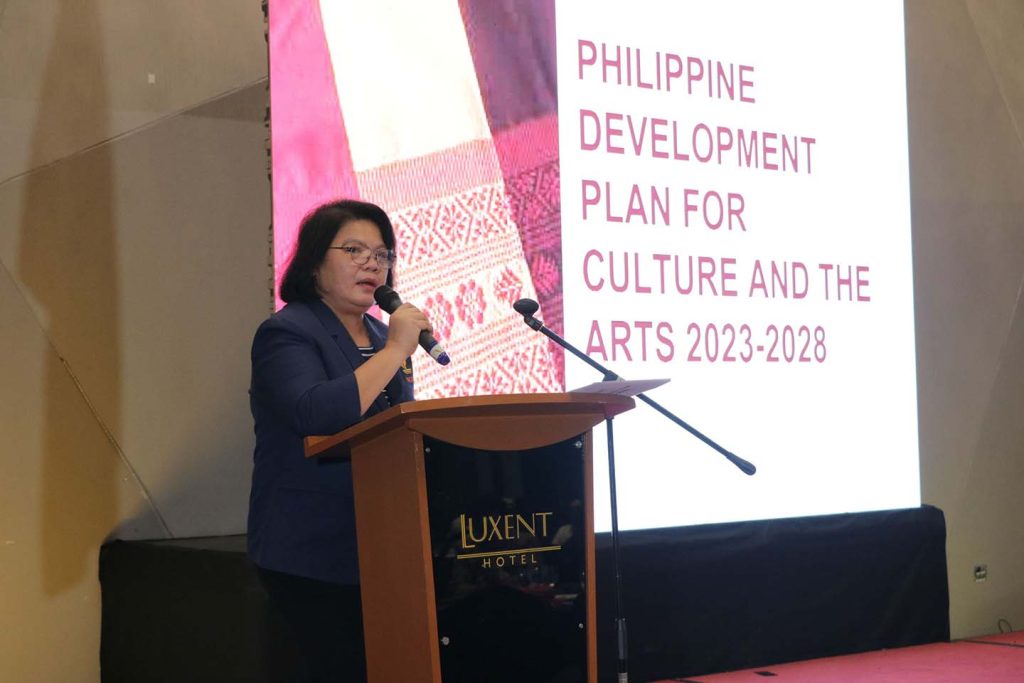
With the new PDP set for 2023 to 2028, the discussion revolved around the mainstreaming of culture in the various sectors and strategies that were prevalent throughout the document. In retrospect, Chapter 7 of the PDP 2017 to 2022 was intended for the promotion of Philippine culture and values towards bayanihan. To address the dissolution of the chapter dedicated to culture, Deputy ED Tellano discussed the Commission’s development plan for the culture sector and explored 8 Key Result Areas (KRAs) specific to Culture, Arts, and Values such as:
- Recognition, Safeguarding, and Conservation of Cultural Heritage;
- Promotion of Creativity and Artistic Excellence;
- Inculcating Filipino Values;
- Contributing to Human and Social Development (Chapters 2.1,2.2, 2.3, and 3.2);
- Contributing to Economic Development (Chapters 4,5, and 7);
- Contributing to Research, Technology, and Infrastructure Development (Chapters 8 and 12);
- Contributing to Culture-Sensitive Governance and Peace (Chapter 14); and
- Contributing to Climate Action and Disaster Resilience (Chapter 15).
The second part of the discussion started with the objectives for the breakout session, delivered by Lorenzo Isla. The participants for the breakout session were divided into island clusters: NCR, Luzon, Visayas, and Mindanao. It aims to: a) discuss the overview of the PDP and framing of the PDP; b) address the concerns and potentials and constraints or opportunities for culture, arts, and values that must be given attention (particularly in KRA 1, 2, and 3); c) formulate policies and programs to address the identified concerns and potentials, and d) define or designate involved institutions or organizations to act upon each recommendation.
In his closing remarks, NCCA Executive Director Oscar Casaysay underscored the pivotal role of culture in molding our national identity, promoting social cohesion, and propelling economic growth. He reaffirmed the NCCA’s unwavering commitment to supporting artists and cultural workers, urging them to transform challenges into inspiration for proactive action, solution implementation, and gap bridging. Concluding his address, ED Casaysay encouraged participants to embrace the spirit of hope and determination as advocates, fostering expanded horizons for Filipino culture.

